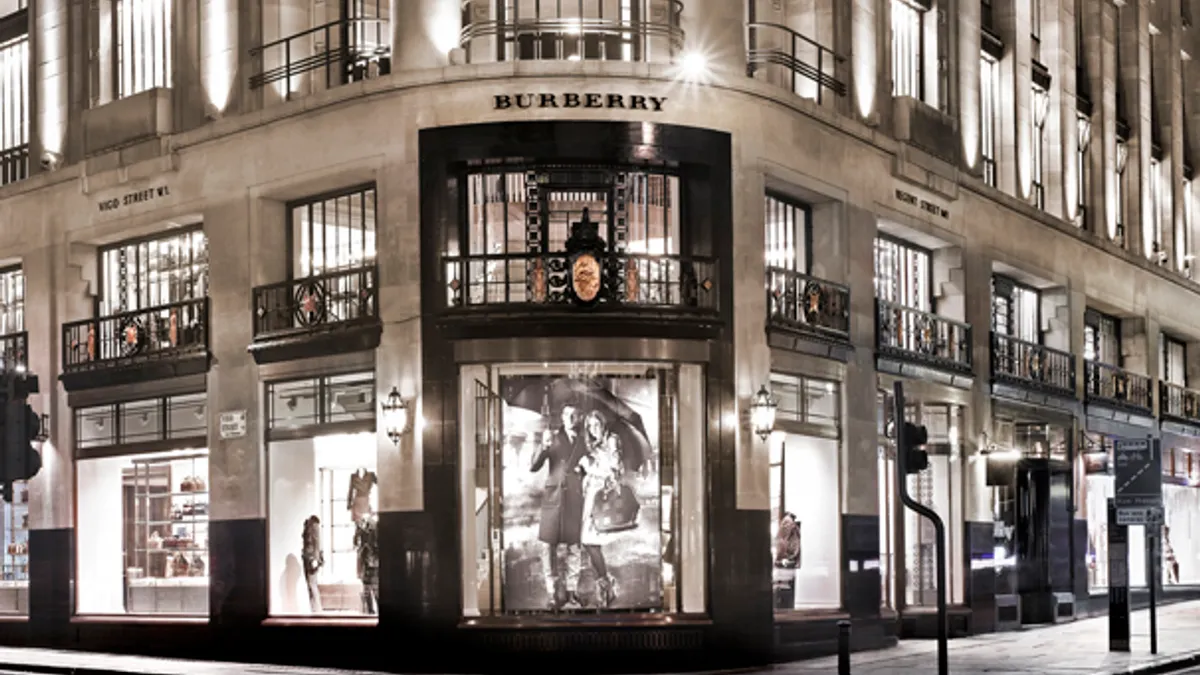Dive Brief:
- Growing demand in mainland China, Korea and Japan helped luxury fashion brand Burberry post a 1% increase in sales during the third quarter, Reuters reports.
- Notably, Burberry said on a call with investors that e-commerce "outperformed" for the brand in all regions, adding that mobile is now the primary source of traffic to its web properties.
- Recently, demand in China has fallen for other luxury brands, such as Gucci and LVMH, due to concerns about an economic slowdown.
Dive Insight:
The mobile and e-commerce news from Burberry is an indication that luxury fashion brands can succeed in the space, despite initially struggling to do so. Luxury brands have historically avoided e-commerce due to the demands of building and managing online operations, preferring to outsource those functions whenever possible.
However, Burberry's movements show that these high-end brands can successfully build a strong digital presence. Fellow luxury brands such as Hugo Boss and LVMH’s Fendi and Dior are starting to develop their own e-commerce capabilities as growth in China becomes sluggish, according to a report in Business of Fashion.
Meanwhile, China’s economic uncertainties haven’t hit Burberry too hard, but the brand was not immune to the slowdown. While traffic at its bricks-and-mortar stores slowed significantly (20%) in the former protectorates of Hong Kong and Macau due to a decrease in tourism, consumers in Mainland China continued to buy outerwear, scarves and apparel from the luxury brand. China accounts for about one-third of Burberry’s global revenues, according to estimates.
Burberry will find out if that renewed momentum in Asia can spread to Hong Kong and Macau during the upcoming Lunar New Year celebrations. Burberry will focus on cost controls and mobile to meet analyst expectations.














